Master of Science in Marriage and Family TherapyHenry Predolin College of Health Sciences
As a Marriage and Family Therapist (MFT), you are specifically trained to treat mental and emotional concerns individually, relationally, and systemically. Whether a concern is related to work or home, parent-child, immediate/extended family, partner/couple or other contemporary relationship, an MFT focuses on providing holistic care from a systemic perspective that is inclusive of a client’s relationships and environment.
MFTs are mental health professionals who receive training in both psychotherapy and family systems. They are trained and equipped to recognize how relational dynamics impact mental health as well as how mental health impacts relationships. While treatment focuses primarily on the individual(s) in the room, awareness of the broader perspective of the systems surrounding those individuals is important to successful therapy outcomes.
Madison, WI
On-campus
48
August 24, 2026
Interested in finding out more?
Schedule a tour of Edgewood University’s training site for MFTs, The Family Center, where we support the mental health and well-being of our community. Meet our staff, learn more about our program, and consider how this might support your career.
The Family Center
8025 Excelsior Drive
Madison, WI 53717
For questions, contact Laura Kitoi
To learn more about the Marriage and Family Therapy Graduate Program at Edgewood University, view our current MFT Program Handbook.
Careers within Marriage and Family Therapy
$63,780
Average annual salary for a Marriage & Family Therapist
16%
Projected employment growth rate, from 2023-2033 (much faster than average)
Student Spotlights
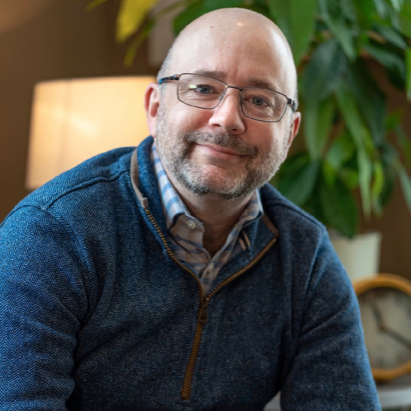
Aaron Doeppers ‘21
Psychotherapist, LMFT
“I found Edgewood University’s phenomenal MFT cohort and flexibility of the program to be a great way to transition into this field. Therapy has always been a passion of mine, and Edgewood University gave me the personal guidance and hands-on experiences to ensure I excel in my changing career. I was able to build skills and experience through an internship at The Family Center. This clinical experience at The Family Center was a meaningful way to live my values of community service and it is an excellent demonstration of this commitment by Edgewood University too.”
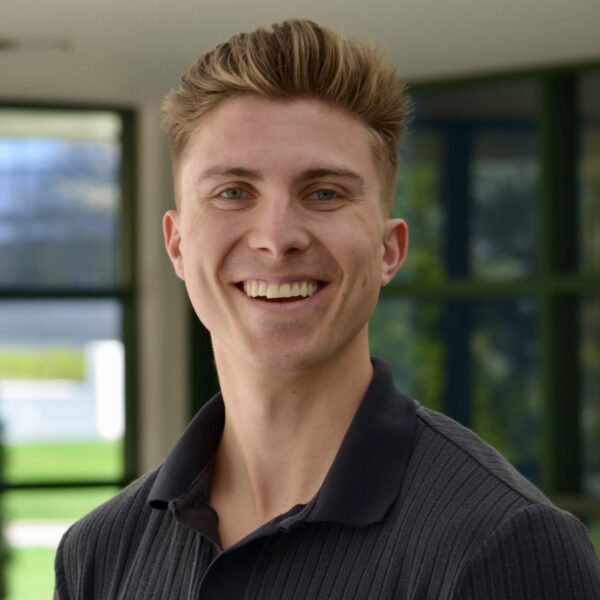
Nolan Billstrom ’25
Master of Science in Marriage and Family Therapy
“Edgewood’s MFT program not only trained me to think systemically, it also immersed me in a real, living system of support. Being in person allowed for a deep sense of connection and community, which proved just as foundational to my development as the coursework.”
Featured Courses
MFT 600 – Foundations of Systemic Practice
This course facilitates the development of competencies in the foundations and critical epistemological issues of Marriage and Family Therapy (MFT). It includes the historical development of the MFT relational/systemic philosophy and contemporary conceptual foundations of MFT practice.
MFT 620 – Diverse/Multicultural Communities
This course facilitates the development of competencies in understanding and applying knowledge of diversity, power, privilege, and oppression as these relate to race, age, gender, ethnicity, sexual orientation, gender identity, socieconomic status, disability, health status, religious, spiritual and/or beliefs, nation of origin or other relevant social identities. It includes practice with diverse, international, multicultural, marginalized, and/or underserved communities, including developing competencies in working with sexual and gender minorities and their families, as well as anti-racist practices.
MFT 800 – Ethics, Law & Social Responsibility
This course addresses the development of a Marriage and Family Therapy (MFT) identity and professional socialization. It facilitates the development of competencies in ethics in MFT practice, including understanding and applying the American Association for Marriage and Family Therapy (AAMFT) Code of Ethics and understanding legal responsibilities.
Experiential Learning
All students in the Marriage and Family Therapy program participate in a 12-month internship to acquire clinical hours. These hours include a minimum of 500 therapeutic practice hours with an accompanying 100+ hours of supervision. The 500 hours consist of 300+ direct client hours of which a minimum of 100 hours are required to be relational. The remaining hours are approximately 200 ancillary/therapy-related hours. Student interns work from a systemic perspective with a variety of clients, individuals, couples, and families from the community.
Accreditation
The Master of Science in Marriage and Family Therapy Program is an accredited training program approved by the International Accreditation Commission for Systemic Therapy Education.
All MFT program courses have been specifically developed to meet the external accreditation requirements of the Commission on Accreditation for Marriage and Family Therapy Education (COAMFTE). Our program continues to move toward full accreditation. Our recent COAMFTE site visit, September 29 and 30, went extremely well. We look forward to receiving an official accreditation status notification after their next board meeting. Thank you to everyone who has worked hard to make this happen (faculty, staff, supervisors, 1st year students, 2nd year students, alumni, and university administrators)!
Faculty Spotlights
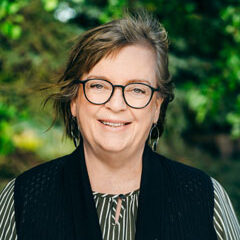
Deb Polacek
LMFT, AAMFT Approved Supervisor, Associate Dean and Program Director
“We are proud to offer a program that trains new therapists to support healthy change while honoring their client’s lived experience.”
To quickly view current MFT faculty/staff, see our MFT Newsletters listed below under Additional Resources.
What Sets Our MFT Program Apart?
Learn On-Site from Practicing Professionals
Students learn within a community of colleagues in our cohort-based program. We limit enrollment to allow for small class size and individual attention. All Marriage and Family Therapy (MFT) faculty have extensive clinical experience in their subject area and maintain active therapy practices. With evening classes, learning is geared toward working adults who need flexibility. Full-time students can complete the program in as few as 22 months. Most part-time students graduate within 3 years.
Program-Coordinated Clinical Placement
Edgewood University’s Marriage and Family Therapy program offers students an extraordinary advantage in having access to their own training facility. The Family Center is an outpatient, community-based mental health center that offers low-cost supportive therapy for individuals, couples, and families. This facility continues to be integral to the success of our program as it provides a supervised location for active therapy practice that supports both student learning and the mental health needs of the community.
Unlike many other programs, the MFT program will connect you to the best internship opportunity so your focus can remain on the learning experience. The MFT Program has built an extensive list of partnership placement options managed by The Family Center which will assist students in fostering additional skill development in areas of personal interest. Internship placement will always seek to connect students with hands-on experiences that complement the systemic approach to therapy.
Postgraduate Support in Licensure Application Process
Your dream job begins with a plan. Faculty in the MFT program will walk alongside you – long after you have accepted your master’s degree. We understand that achieving your graduate degree is a big step – but it’s not going to be your last. We will support you in the application process for licensure, and in exploring that dream job. From networking to career exploration, MFT alumni receive wraparound postgraduate support. Our success is not only measured by your classroom experience. For information on degree portability, click here.
A Program with History and Vision
The Marriage and Family Therapy program at Edgewood University has trained successful psychotherapists since 1996. With a “family systems” lens and a vision to bring mental health advocacy to the Greater Madison area, Dr. Peter Fabian founded both the academic program and The Family Center.
We blend the theoretical and therapeutic approaches within the “General Systems” paradigm, with the primary goal of clinical excellence in training within this field. Unlike other mental health disciplines where students may take one or two classes in how to work holistically and relationally with clients, our entire program focuses on training and education to work within this paradigm.
Featured Articles
This section keeps you updated with recent articles related to our program. Some articles highlight supplemental internship sites (like the Perry Family Free Clinic and the Agrace Grief Support Center) and the impact our students are having within these communities. Other articles reflect contributions to our field made by department members (like the new book by Anne Totero). Still other articles showcase current and past graduates continuing to service our greater Wisconsin community (like our Rural Relations Online Support Group within the Farmer Wellness Program and a wonderful short video of past grad Ashley Clemens).
Frequently Asked Questions
What are the admission requirements for this program?
Applicants for any of the student classifications except non-degree must meet all of the requirements for admission to the graduate programs.
- Official transcripts reflecting completion of a baccalaureate or more advanced degree from a United States accredited or equivalent post-secondary institution with a cumulative grade point average of at least a 3.0 on a 4.0 scale for regular admission status. The cumulative grade point average is computed on the highest degree held at the time of application to the Edgewood University graduate program.
- Complete and submit graduate application.
- Request that official transcripts for all undergraduate and graduate academic credits received from any post-secondary institutions be sent directly to Edgewood University Graduate and Professional Studies.
- The MFT Program Reference Form, must accompany two letters of recommendation from individuals qualified to comment on the candidate’s potential for success as a therapist.
- The MFT program requires a two-page typewritten statement indicating motives and professional goals for pursuing a degree in MFT. The written statement should include:
- Interests and motivation for wanting to be a therapist
- Ability to succeed in graduate school
- What preparation, either through coursework, internship, volunteer work or job experience, has been undertaken that provides basic therapy skills.
- Applicants must also submit a resume.
- Applications will be reviewed upon completion. A follow-up interview may be requested by the program at that time.
- The Marriage and Family Therapy Program begins the fall of each academic year. It is a highly competitive cohort-based graduate program with rolling admissions opening September 1st for the next year’s Fall cohort. Applicants are strongly advised to apply early as applications are reviewed, and spots are filled throughout the year.
- An Orientation Day for newly admitted students will be held during the end of summer before the 1st semester starts.
Admission into the graduate program does not imply the right to admission into the clinical year. The last three semesters of the program contain clinical experiences. Students are separately reviewed for “readiness” for the clinical experiences during their second semester.
What are the residency requirements for this program?
Of the degree requirements, a total of 33 graduate credits must be earned at Edgewood University to meet residency.
A student may submit up to 15 semester hours of graduate credit for consideration of transfer to Edgewood University for application to a degree program. Approval of the respective department is required. To be considered for application to a degree program, a course must have been taken within the past five years. For more information about transfer credits, students should contact their admissions counselor or advisor.
Does this program require a background check?
All MFT program students must comply with the State of Wisconsin requirement for a Caregiver Background Check. Students must have had this check successfully completed by the end of the first semester in the program to be allowed to continue in the program.
What is the maximum credit load allowed in this program?
Full-time students in the Marriage and Family Therapy Program may carry up to twelve credits per semester.
With the clinical requirements of 12 consecutive months in a placement, the MFT Program is designed for the full-time or part-time student. Individuals who are already professionals in the field and do not need the clinical component but desire advanced education in family therapy may be admitted on a part-time basis with “non-degree seeking” classification. Other applicants may be admitted on a part-time basis if space is available, with the recognition that they will need to complete the clinical requirement within the prescribed sequence of 12 consecutive months.
Related Programs
-

On-campus
Bachelor of Science in Child Life -
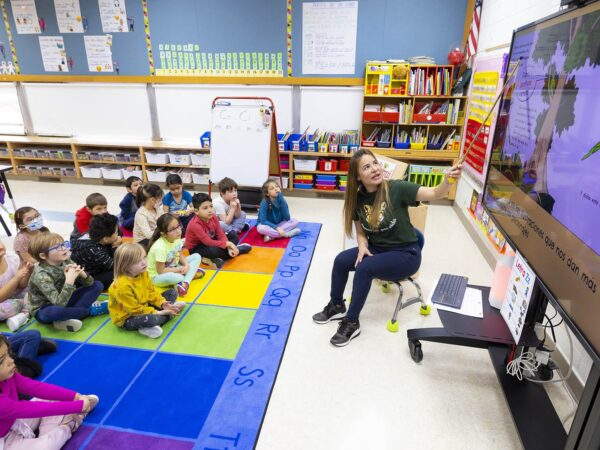
-
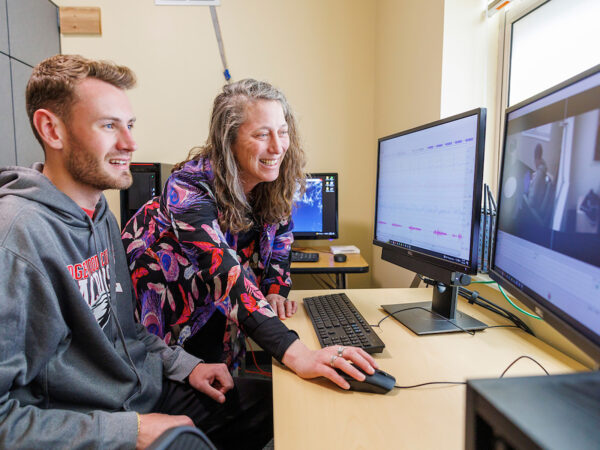
On-campus
Bachelor of Science in Psychology